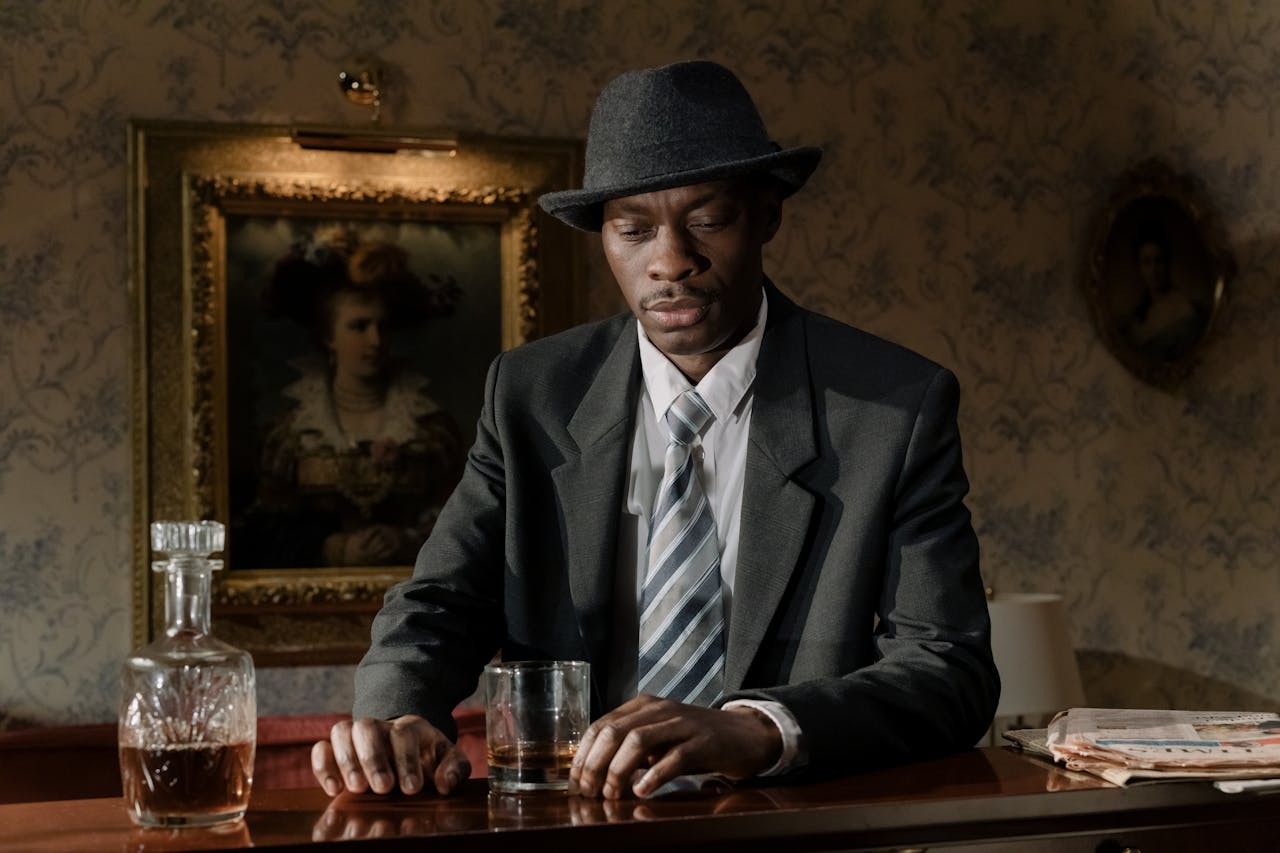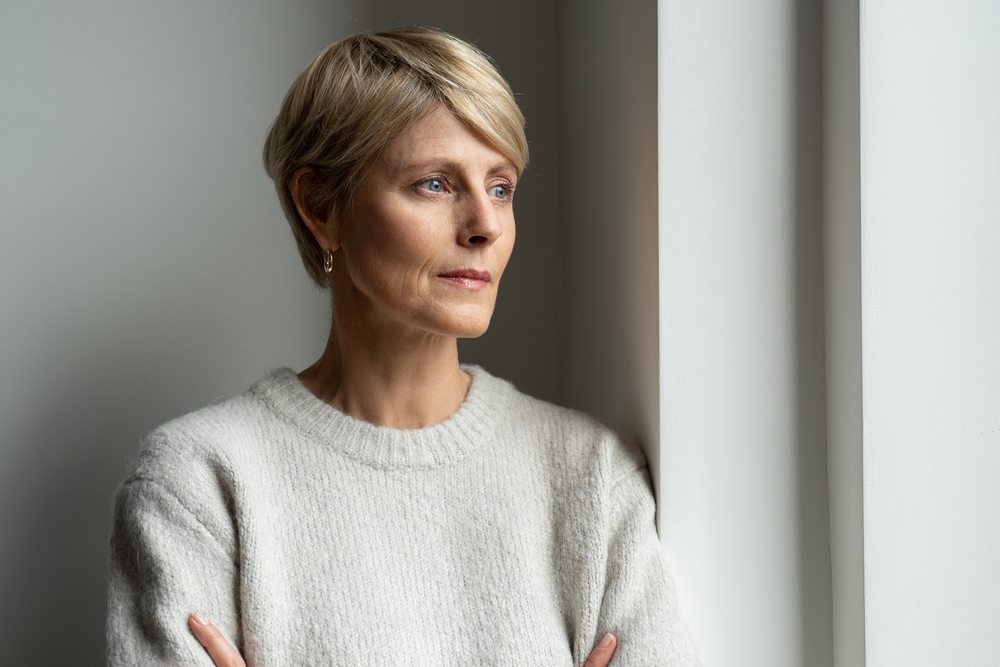If you’ve found yourself in one of those conversations again. The ones where questions hang in the air like unsaid truths, and you wonder if they’ll ever come down to earth. In a world where beliefs can be as diverse as fashion week street styles, it seems there are questions atheists have for the devout that are rarely answered without a side of defensiveness. Let’s open the door to that dialogue a smidge wider. Here are the 13 questions atheists want religious folks to answer with unfiltered honesty—because isn’t it time we stopped tiptoeing around our curiosities?
1. How Do You Reconcile Science And Religion?

You hear it often: faith and science are like oil and water, but is it really true? From evolution to the Big Bang, modern science paints a picture of the universe that seems to clash with sacred texts. Yet, you’ve got people like Francis Collins, a geneticist who led the Human Genome Project, who sees no conflict between his science and his faith. Is it possible you’re selectively cherry-picking the elements of science that don’t rock the boat of your belief system?
Sure, the universe’s mysteries can feel like a divine puzzle, but what happens when these puzzles can be solved through facts and figures? Does bending science to fit a narrative make the faith more palatable or more precarious? For those of us who find comfort in the tangibility of data, it’s hard not to feel a bit skeptical about the balancing act of holding a microscope in one hand and a Bible in the other. We wonder, when push comes to shove, which do you trust more?
2. Why Is Your Faith The “Right” One?

With thousands of religions and countless interpretations of spirituality, what makes yours the ultimate truth? It’s like saying your small hometown is the best place on earth when you’ve barely traveled beyond the county line. The confidence in claiming one path as the singular truth can sound more like a limitation than enlightenment. After all, isn’t the beauty of humanity found in our diversity?
It must be comforting to feel secure in your spiritual brand, but what if the answer lies in the unfamiliar? Many atheists wonder how much exploration would unravel the tightly wound yarn of absolute conviction. If you were born in a different time, a different place, would your beliefs look the same? These questions aren’t meant to dismantle, but to broaden the horizons of your faith dialogue.
3. Do You Ever Doubt Your Beliefs?

Doubt is often portrayed as the antithesis of faith, but isn’t it just part of being human? We question our choices in relationships, careers, and even our own identities. So why not our beliefs? According to Dr. Valerie Tarico, a psychologist and former evangelical, doubt can actually lead to a more robust faith by prompting deeper thinking and personal growth.
Atheists often wonder if the fear of divine repercussions keeps people from openly questioning their faith. After all, isn’t the questioning what leads to greater understanding? It seems only natural to struggle with complex ideas and contradictions; life is messy and doesn’t come with a manual. If faith is truly a journey, then perhaps doubt is simply asking for directions.
4. Why Do Bad Things Happen To Good People?

It’s a classic question that has stumped theologians and laypeople alike for centuries. When disasters strike or injustice prevails, the oft-heard refrain is “God has a plan.” But how does that explanation sit with you when faced with senseless suffering? Is “free will” a satisfying answer when the innocent suffer at the hands of others?
For atheists, the concept of a benevolent deity orchestrating a world with so much pain can seem contradictory. It can feel like watching a film where the plot holes are too big to ignore. If you have faith in a divine plan, how do you make peace with the chaos? These questions aren’t meant to attack but to understand how that reconciliation works on a personal level.
5. How Do You Explain Miracles?

Miracles are often cited as evidence of divine intervention—events so extraordinary they can only be the work of a higher power. But what about the countless studies, like those by Dr. Caroline Watt of the University of Edinburgh, which delve into the psychology of coincidences? Are miracles simply statistical outliers that we frame with a religious narrative?
It can be comforting to frame a lucky break or a remarkable recovery as the work of a higher power, but doesn’t that dismiss the incredible capabilities of the human body or mind? For atheists, miracles often prompt more questions than answers. Is it about the rarity of the event or the meaning we attach to it? How do you measure the miraculous without leaning on the supernatural?
6. Why Do You Practice Rituals?

Rituals seem to go hand in hand with religion, but what’s their deeper purpose beyond tradition? Lighting candles, kneeling, chanting—are these acts for divine attention or human comfort? For atheists, these practices can seem like pageantry without substance. Do they serve as reminders of faith, or are they merely habits dressed as holiness?
When you engage in these rituals, is it an act of community or a personal conversation with something greater? Atheists often see rituals as symbolic gestures rather than spiritual necessities. If the divine exists, would it not know your heart without these ceremonial displays? It’s fascinating to consider whether rituals are truly divine or simply a way to feel closer to the divine.
7. How Do You Define “Spirituality”?

Spirituality is a word tossed around like confetti, but what does it really mean to you? Does it exist in nature, in moments of awe, or only within the walls of a temple or church? A study by Pew Research found that many people identify as “spiritual but not religious,” suggesting a nuanced relationship with the concept. Is your spirituality tied to religion, or do you see them as separate?
Atheists are curious about how such an abstract concept holds such concrete sway over lives. When you speak of spirituality, is it a feeling, a practice, or something else entirely? How do you define something so deeply personal and often indescribable? It’s intriguing to consider how the same term can evoke such varied interpretations.
8. Are You Afraid Of Going To Hell?

Is fear of the unknown a cornerstone of your faith, or is it merely a byproduct? The fear of eternal damnation or divine retribution can be compelling motivators, but are they healthy ones? Atheists often wonder if fear keeps you locked in belief rather than leading you to it. Is it possible that some aspects of faith thrive on fear?
Consider how much of religious practice is driven by fear versus love or hope. When fear is a primary motivator, does that minimize authentic connection and understanding? How do you separate fear from faith in your spiritual journey? These are questions that poke at the core of why we believe what we believe.
9. How Do You Navigate Conflicting Beliefs?

Contradictory teachings and tenets can make religion feel like a minefield. When you encounter conflicting beliefs, are they stepping stones to greater understanding or stumbling blocks on the path of faith? For atheists, seeing the discord within religious texts or doctrines raises questions about the nature of truth. How do you reconcile these contradictions?
Is it about reinterpretation, selective acceptance, or something else? Conflict can often be a catalyst for growth, but it can also deepen divides. When faced with a theological paradox, do you see it as a challenge to refine your faith or a threat to its foundation? It’s a dance between tradition and personal evolution, one that atheists find endlessly intriguing.
10. How Do You Handle The Hypocrisy In Religion?

From scandals to power abuses, religion’s track record can be as checkered as a picnic blanket. How do you maintain faith when faced with hypocrisy in religious institutions? For atheists, such hypocrisy can be a deal-breaker, painting organized religion as fundamentally flawed. Does one bad apple spoil the bunch, or do you see it as a case of human failure?
When religious leaders falter, how does it impact your belief in the divine message? Is faith a separate entity from the flawed humans who practice it? For many atheists, this is a sticking point that’s hard to overlook. Can you separate the message from the messengers, or do they inevitably intertwine?
11. What’s Your Take On Non-Believers?

From disdain to pity to indifference, views on atheists vary greatly within religious communities. Do you see non-believers as lost souls, potential converts, or just folks with different views? The relationship between believers and non-believers can sometimes resemble a complicated dance of respect and misunderstanding. How do you navigate this dynamic?
For atheists, the fear of judgment or attempts at conversion can be off-putting. Do you view them as challenges to your faith, or as people simply choosing another path? These interactions can either build bridges or burn them, depending on the approach. It’s a question of coexistence in a world rich with differing perspectives.
12. How Do You Balance Faith And Modern Morality?

In an ever-evolving world, moral codes shift and adapt. How do you reconcile the tenets of ancient texts with contemporary societal values? Atheists often grapple with the idea of a static moral code in a dynamic world. When norms change, does your faith adapt, or do you hold steadfast to tradition?
Society’s progress in areas like gender equality, LGBTQ rights, and social justice can clash with traditional religious teachings. How do you navigate this divide? Is it a matter of interpreting scripture in a modern context, or do you stand by time-worn beliefs? These questions probe at the intersection of faith and progress, a place where friction often ignites.
13. What Is The Ultimate Goal Of Your Faith?

Is it an eternal reward, a life of virtue, or something else entirely? When atheists ask about the endgame of faith, they’re not looking for Sunday school answers. The promise of an afterlife or spiritual enlightenment can be compelling, yet abstract. What are you truly aiming for in your spiritual journey?
For atheists, the focus is often on the here and now, making the concept of an ultimate goal in faith somewhat elusive. Is it about living a good life, securing a place in the afterlife, or something more intangible? The pursuit of purpose is universal, but the pathways are diverse. How does your faith shape your ultimate aspirations?

Abisola is a communication specialist with a background in language studies and project management. She believes in the power of words to effectively connect with her audience and address their needs. With her strong foundation in both language and project management, she crafts messages that are not only clear and engaging but also aligned with strategic goals. Whether through content creation, storytelling, or communication planning, Abisola uses her expertise to ensure that her messages resonate and deliver lasting value to her audience.


